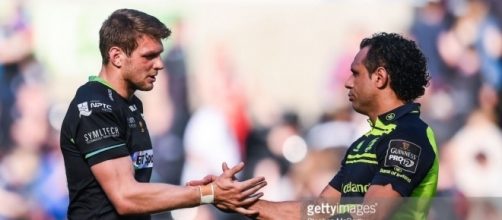In my ongoing endeavours to qualify as a rugby union referee, I had to pass the RFU's online Concussion Awareness course. Its purpose is admirable, and it did feed my thoughts on the dangers to those who play my favourite sport, but I couldn’t help but feel sceptical when instructed to ask players a few simple questions in order to assess their state. My doubts were increased when a simple Google search on testing for head injuries revealed some rather more medical-sounding results than asking someone where they are or what the score in the match is.
And it has all made me ask myself, 'Are rugby's head injury protocols sufficient?'
Head Injury Assessment
At the top end of things, we now have the Head Injury Assessment which World Rugby are so proud of, but clear evidence suggests that it isn’t enough. Dr Bennet Omalu, one of the world’s most outspoken critics of the impact contact sports have on their participants' heads, and more importantly, the discoverer of CTE, has openly dismissed the idea of a comprehensive test being carried out pitch-side in a matter of minutes. Dan Biggar recently admitted to barely remembering the end of a match in which he shipped a heavy blow, and on another occasion, George North returned to the pitch after seeming to lie unconscious.
That both Welshmen passed the HIA surely shows it to be an inadequate system.
To give credit to the sport's governing body, World Rugby's guide to concussion advises that any suspects seek the best medical assessment available before commencing the Graduated Return to Play protocols. The problem is, how do we define whether someone has suspected concussion or not? Lots of little knocks might not have any visible effects at any given time, but that doesn’t necessarily mean that they won’t all add up.
Regular check-ups
So, why not make regular check-ups obligatory across the board? All rugby players could be sent to a neuropsychologist and given brain imaging tests such as a CT scan every few months, and only be allowed to continue playing if given the all clear.
Thus every player could take to the field knowing that he/she isn’t one knock away from severe brain injury.
Now, lacking any medical expertise, it's not for me to say which exact type of examination should be carried out or how often, but I see no reason why it can’t be looked into. Of course, it may be logistically and financially difficult for amateurs and parents of underage players to seek such treatment on a regular basis, but surely the professional game at least could make room for some head injury experts alongside the legions of medics, kit carriers, press officers and every type of specialised coach under the sun. In addition to the safety benefits, a bit of extra employment could also be generated for such medical professionals, making it good news all round.


